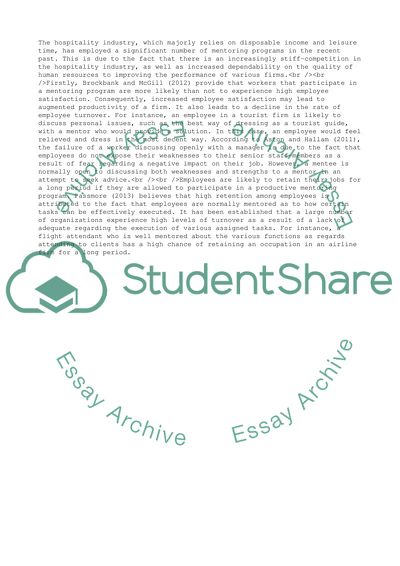Cite this document
(Benefits and Challenges of Mentoring to Hospitality Organizations and Literature review - 1, n.d.)
Benefits and Challenges of Mentoring to Hospitality Organizations and Literature review - 1. https://studentshare.org/management/1805659-contemporary-issues
Benefits and Challenges of Mentoring to Hospitality Organizations and Literature review - 1. https://studentshare.org/management/1805659-contemporary-issues
(Benefits and Challenges of Mentoring to Hospitality Organizations and Literature Review - 1)
Benefits and Challenges of Mentoring to Hospitality Organizations and Literature Review - 1. https://studentshare.org/management/1805659-contemporary-issues.
Benefits and Challenges of Mentoring to Hospitality Organizations and Literature Review - 1. https://studentshare.org/management/1805659-contemporary-issues.
“Benefits and Challenges of Mentoring to Hospitality Organizations and Literature Review - 1”. https://studentshare.org/management/1805659-contemporary-issues.


